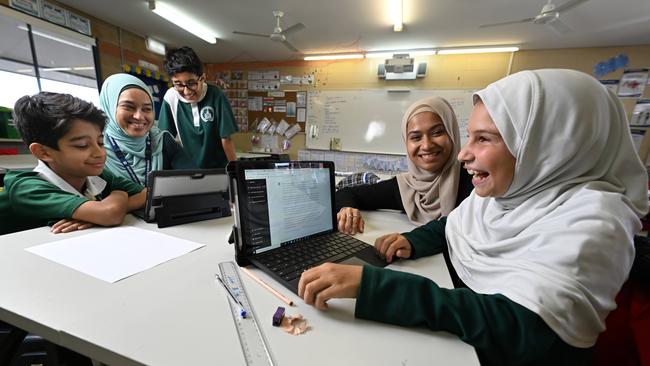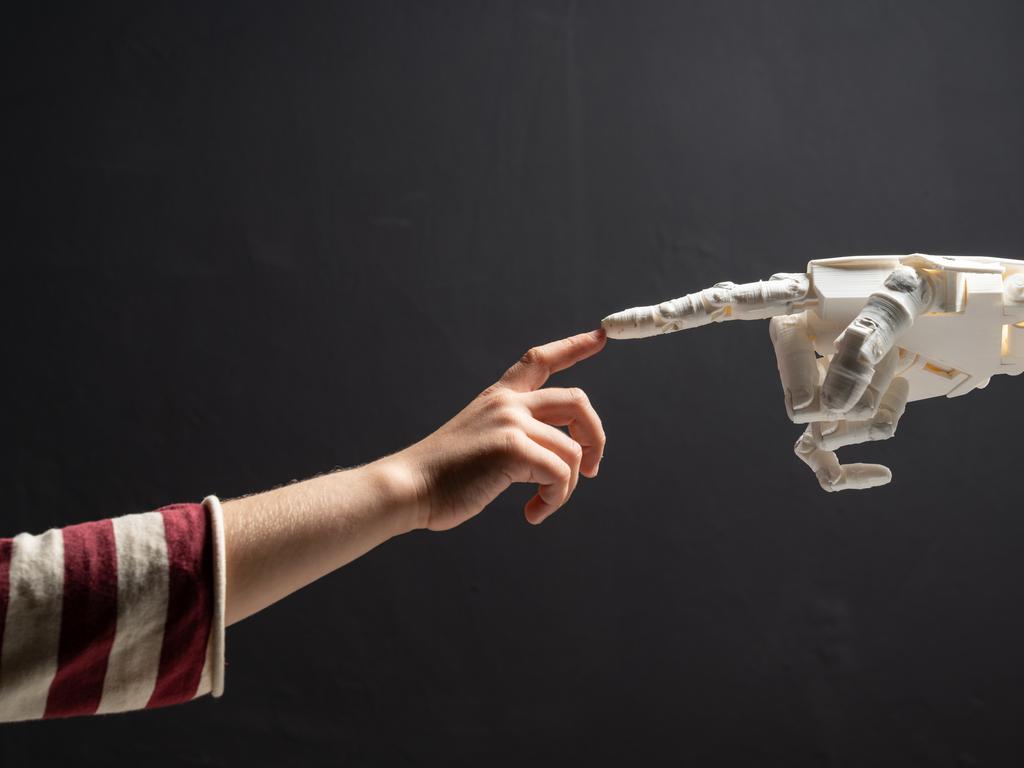‘Cheatbot’ rewards outweigh risks, say private schools
Private schools are adopting artificial intelligence ‘cheatbots’ banned by state schools for teaching and learning.

Private schools are adopting artificial intelligence “cheatbots’’ banned by state schools for teaching and learning.
The Loreto Normanhurst girls school in Sydney has criticised “draconian” bans on the use of Open AI’s research and writing tool ChatGPT, blocked by the NSW, Victorian, Queensland and Tasmanian education departments due to concerns state school students will use it to cheat or access inappropriate content.
Loreto director of learning Kieryn Bateman said the chatbot could be used to teach students to analyse and verify information.
“My fear is that some schools and educators may respond to such technology in a draconian fashion, reverting to old-school and outdated methods of assessment to avoid the risk of plagiarism,’’ she said. “This could set education back 100 years.
“We need to respond with curiosity and a critical mindset to determine how to harness these tools for greater learning.”
The Islamic School of Brisbane also will incorporate AI in its curriculum and teaching methods this year, to prepare its 1600 students “for the real world’’.
College chief executive Ali Kadri said teachers would use ChatGPT to prepare lesson plans. Likening AI to “the invention of fire’’, Mr Kadri said the learning benefits outweighed the risks of cheating.
“With the right approach, we believe this technology could help unlock student creativity, offer personalised tutoring, and better prepare students to work alongside AI systems as adults.’’
Mr Kadri said ChatGPT took just 20 seconds to generate a high-quality plan for a 45-minute lesson. “My 100 teachers had their jaws on the floor when they saw it,’’ he said. “In 20 seconds, it’s done a draft lesson plan that would take a teacher half a day to complete.’’
Mr Kadri said teachers could cut and paste a subject content descriptor from the national curriculum document into ChatGPT to produce a draft lesson plan.
“It’s not really accurate for complex mathematics but it is very good at language and amazing at programming,’’ he said.
“It fixes computer code, and explains how it fixed it.’’
Mr Kadri said “the biggest risk of AI is cheating in assessments’’.
“We’re looking at altering our assessments to have oral assessments, or an accompanying quiz in class under supervision to ensure they have learned the work and haven’t substituted writing with cut-and-paste to plagiarise through an AI system,’’ he said.
“If a student who couldn’t put sentences together suddenly produces Shakespeare-level essays, that will give cause to inquire and you can compare it to the quality of a previous essay. It’s a cat-and-mouse game because AI is getting smarter, but the benefits far outweigh any risks.’’
Ms Bateman said Loreto Normanhurst would use AI to design assessments. “A lot of our teachers have been experimenting with it to develop responses for students to analyse and critique,’’ she said.
“Students need to put a critical eye over it to see how it is deficient and can be improved.’’
She said the school would focus its assessment methods on tests in class, and require students to explain their work verbally as well as handwrite some essays and assignments in class.








To join the conversation, please log in. Don't have an account? Register
Join the conversation, you are commenting as Logout